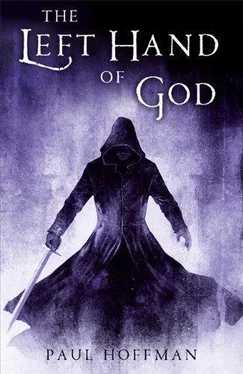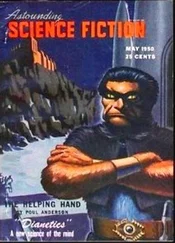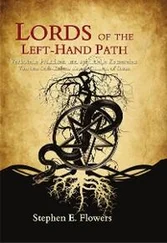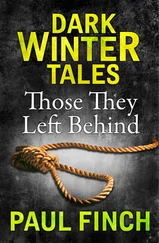“Yes, I would,” said IdrisPukke. “And why wouldn’t I? God knows it’s been a long time since anyone was pleased to see me.”
“And whose fault is that?”
“Mine, dear brother,” laughed IdrisPukke. “All mine.”
“You should perhaps explain to the boy why his reception has been so muted.”
“To be honest, I don’t think he gives a damn. Saving Arbell Swan-Neck was just a means to an end for him. He thought it was in his interests to risk his life-and that was all. He’s never asked once about her. For all my misgivings, I praised his courage, and still he looked at me as if I were a fool. He wants money and a safe passage as far away from his old masters as the sea will carry him. This is not someone who cares for praise or blame. If he pleases or doesn’t please, it’s all the same to him.”
“Then,” said Lord Vipond, “he really is a most exceptional fellow.” He stood up. “At any rate, whether you’re right or not, the Marshal wishes to thank him personally tonight and, of course, Arbell Swan-Neck-though by the look on her face when he told her, she’d rather eat a weasel.”
For goodness’ sake!” said the Marshal to his daughter. “Cheer up.” “He frightens me,” said the deathly pale but beautiful young woman.
“Frightens you? He saved your life. What’s the matter with you?”
“I know he saved my life-but it was horrible.”
The Marshal gasped with irritation.
“I dare say it was horrible. Killing is a horrible thing. But he did what was necessary and he risked his own life-more than risked, given the odds-and you stand there whingeing about how terrible it was. What you need to do is think about how terrible things would have been if he hadn’t saved you.”
Arbell Swan-Neck, not used to being upbraided like this, looked even more miserable.
“I know he saved my life-but he still frightens me. You’ve never seen what he’s like. I have-twice. He’s not like anything I’ve ever seen-he’s not human.”
“Ridiculous-I’ve never heard anything so ridiculous. By God, you’d better be polite to him or there’ll be trouble.”
Neither was Arbell used to being threatened, and she was about to abandon her role as fearful girl for something more spirited when the door of the small dining room opened and a servant’s announcement interrupted.
“Chancellor Vipond and guests, m’lud.”
“Welcome, welcome,” enthused the Marshal, attempting to dispel the coldness in the atmosphere with so much zeal that both Vipond and IdrisPukke were aware that there was some awkwardness in the room.
Cale was aware of nothing but the presence of Arbell Swan-Neck, who stood by the window looking beautiful and trying, unsuccessfully, not to shake. Cale, who had been in a state of longing and dread since he had learned that she was to be at the dinner, was also trying not to tremble.
“You must be Cale,” said the Marshal, warmly grasping his hand. “Thank you, thank you. What you’ve done can never be repaid.” He looked over at his daughter. “Arbell.” His tone was at once encouraging and threatening. Slowly the beautiful young girl, effortlessly graceful, tall and slender, walked over to Cale and held out her hand.
Cale took it as if he barely knew what to do with it. He did not notice that Arbell’s face (you would not have thought it possible) turned as pale as moonlight on snow.
“Thank you for everything you have done for me. I am very grateful.”
It struck IdrisPukke that he had heard more life and enthusiasm in the last words of a condemned man going to the gallows. The Marshal looked fiercely at his daughter-and yet he could see that she was deeply afraid of the boy in front of her. To his irritation at her lack of manners was also added a genuine puzzlement. However deep his gratitude, and it went very deep indeed because he adored his daughter, he was, in truth, somewhat disappointed by Cale. He had expected-well, he wasn’t sure what he had expected precisely-but someone, surely, given his fearsome reputation, with majestic presence, the charismatic power that any great man of violence always, in his experience, carried with him. But Cale looked like a young peasant, not bad-looking in an unrefined way, but as stupefied and stumped by the presence of royalty as peasants usually were. How such a creature could have battered the very best of the young Materazzi and killed so many men single-handed was utterly mysterious.
“Let’s eat. You must be very hungry. Come and sit by me,” he said, taking Cale by the shoulders.
He was no sooner seated with Arbell opposite, her eyes downcast at the plate in front of her, than he became aware of the massed ranks of cutlery in front of him, a platoon of forks of various sizes, a matching squad of knives, sharp and blunt. Most disconcerting of all was an object that looked like something used for a particularly painful act of torture-the removal of a nose, say, or a penis. It looked like a tong-but it crossed over and back on itself at the end in an utterly mysterious way.
He already felt bad enough-an incomprehensible mixture of adoration and hatred for the woman seated across from him, who had taken his hand with as much enthusiasm as if it had been a dead fish. The ungrateful gorgeous bitch. Now he was certain to look something that he could not endure: foolish. Terrible pain and even death itself seemed to hold no fear for Cale-who, after all, could wield these two more skilfully than Cale himself?-but the prospect of feeling ridiculous made him almost weak with anxiety.
He nearly jumped as Stillnoch slid up behind him so silently that Cale was unaware of his presence-no mean feat-until a plate was put in front of him and the sympathetic Stillnoch whispered, “Snails!” into his ear.
Unaware of his heroic status in Stillnoch’s eyes, Cale thought that “Snails!” must be some sort of withering insult from a servant who resented his presence among the great and good. On the other hand, he thought, trying to calm down, perhaps it was a warning. But, if so, of what kind? He looked down at the plate and his confusion deepened. Lying in front of him were six objects that looked like tiny, coiled soldiers’ helmets with a horrible-looking flecked stickum oozing out of them. They certainly looked like something you needed to be warned against.
“Ah!” said IdrisPukke, sniffing the air like the worst actor in a pantomime. “Excellent. Snails in garlic butter!” Sitting next to Cale, he had noticed immediately the boy’s alarm at the vast array of cutlery in front of him and the look of horror at the six snails in their shells. Now that he had Cale’s attention, and, it must be said, the attention of the rest of the table, he raised the peculiar-looking tong instrument in his right hand and gave it a squeeze. The two spoonlike ends opened up, and he used them to cradle a snail shell. He loosened his squeeze on the handle and the spoons clamped shut, holding the shell firmly in their grasp. Taking up a small ivory-handled skewer, he poked inside the shell and adroitly, if theatrically so that Cale could see what he was doing, eased out what looked like (despite the garlic, parsley and butter in which it was smothered) a greeny gray piece of cartilage the size of an earlobe. Then he popped it into his mouth with another theatrical gasp of satisfaction.
Though at first bemused by this strange performance, the others around the table quickly realized what he was trying to do and studiously avoided looking at Cale as he stared down malevolently at his first course.
You might be surprised that a boy readily prepared to eat rat would turn his nose up at eating snail. But he had never seen a snail before, and who is to say that, all things being equal, you wouldn’t choose to eat a glossy, well-fed vigorous rat over a snail oozing its pockmarked sluggy way from under a rotting log.
Читать дальше











